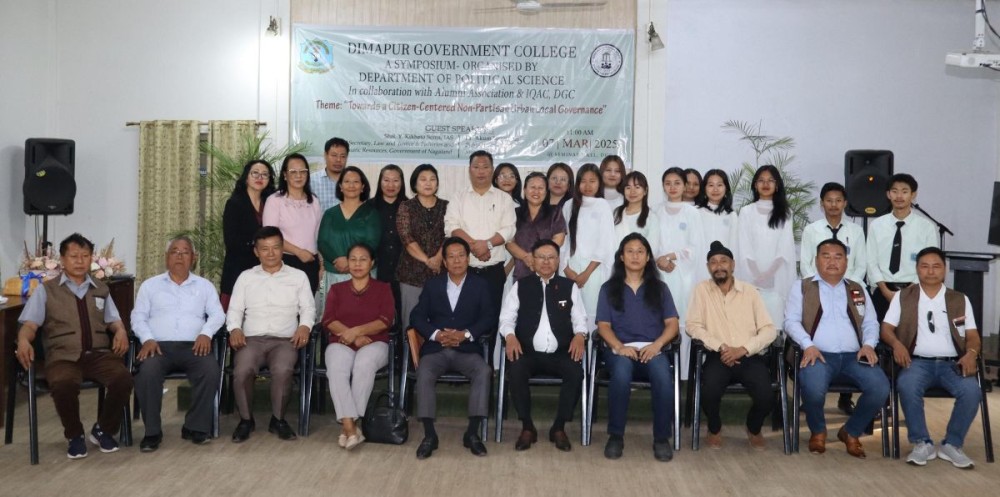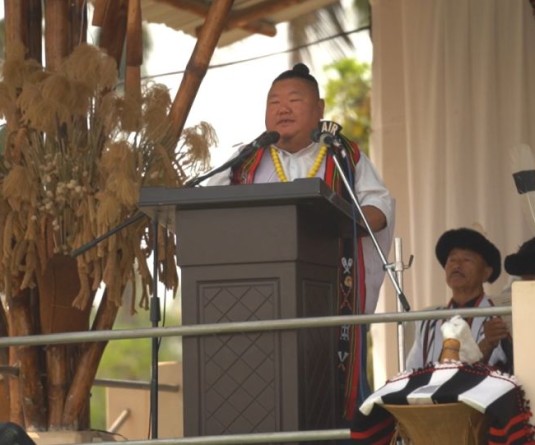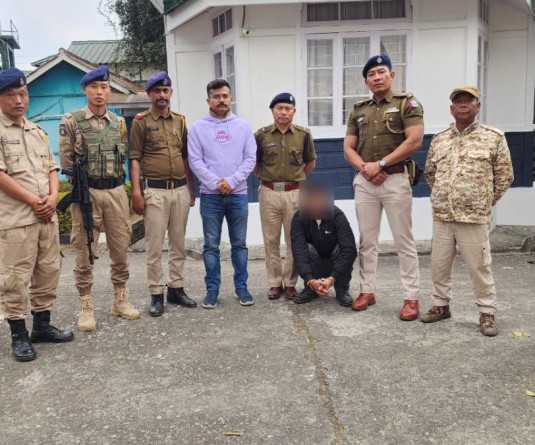
1 short of 3Fs for effective urban governance
Morung Express News
Dimapur | March 7
Nagaland went through a 15-year long ‘municipal interregnum,’ which literally saw bureaucrats handling urban civic functions. With the newly elected Urban Local Bodies (ULBs) taking charge, they now face the challenge of transitioning from a civil servant-led system to a citizen-centric model, according to Dr Aküm Longchari, Publisher and Editor of The Morung Express.
Longchari made the comment at a symposium organised by the Political Science Department of Dimapur Government College (DGC) on March 7. The symposium was organised in collaboration with the Alumni Association & IQAC, DGC under the theme— Towards a citizen-centered non-partisan urban local governance. Y Kikheto Sema, Principal Secretary, Law and Justice, Fisheries and Aquatic Resources was the other speaker.
Longchari presented his lecture from a civilian viewpoint with ‘Urban local governance: Citizen’s perspective’ as the underlying premise. According to him, transitioning to a citizen-centric model requires embracing a participatory bottom-up approach to governance, and tackling the deeply ingrained issue of systemic corruption, which has hindered public participation and undermined effective governance. “This approach needs to be consistently reflected throughout the functional and structural aspects of the ULBs,” he said, while stating that effectiveness will be determined by how soon the councillors initiate qualitative changes.
He said that the functioning of ULBs in the state is limited by inadequate infrastructure, financial constraints and a lack of comprehensive urban planning. Besides, he added that low voter turnout reflects public apathy and distrust, which weakens democratic processes at the local level.
While pointing out the obvious needs like improved public transportation, effective waste management, and comprehensive urban planning that considers existing land ownership patterns, he stressed the crucial role of public awareness and participation in ensuring effective ULB functioning.
He called for a re-imagined governance model replacing the existing system characterised by identity politics, patrimonial rule, and a focus on managing differences rather than addressing needs. He added that a new paradigm should prioritise ethical values, inclusivity, transparency and accountability, which demands moving beyond colonial constructs like tribe-based administrative units, which can perpetuate divisions and hinder progress.
Reiterating the emphasis on a people-oriented approach to effective governance, he said that it requires institutions that are responsive, humanistic and genuinely committed to inclusive human development. This entails empowering ULBs, promoting citizen engagement, and creating mechanisms for public accountability, he added.
ULBs provide a platform for change. However, he maintained that affecting the imagined change requires sustained effort, political will and a commitment to building a governance system that truly serves the needs of the people.
While noting the contribution of urban areas to the GDP, Principal Secretary Kikheto Sema, drew attention to the challenges Nagaland is currently facing, and is going to face, in the face of rapid urbanisation. His topic was ‘Strengthening urban local bodies within existing legal framework in the face of internal & external politics.’ From one recognised town in 1951 to 39 ULBs, today, he said that the growth brings challenges, including traffic congestion, slums and waste management issues, further exacerbated by unplanned urban expansion.
Such a setting, where villages jut out into the city/urban limits, calls for shrewd urban planning, he said. Citing the contiguous location of Dimapur, Chümoukedima and Niuland, he outlined the possibility of what he called “twin or even triple cities.”
He referred to the 3 Fs (fund, functionaries and function) of effective urban governance, in which the shortage or absence of one would render the other two ineffective. He said that the ULBs in Nagaland are deprived of ‘property tax,’ a major source of income, if not the single biggest source, for most ULBs, owing to the state’s special status granted via Article 371 (A).
Given the state of affairs, he said that ULBs should be held to a high standard of accountability and transparency in managing public funds, besides developing a skilled workforce (functionaries), backed by an aware citizenry.






